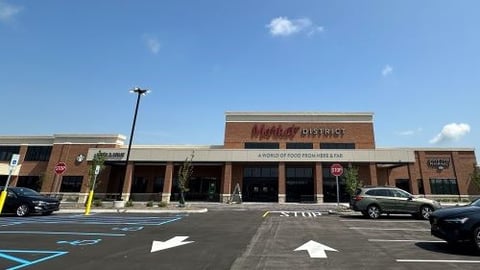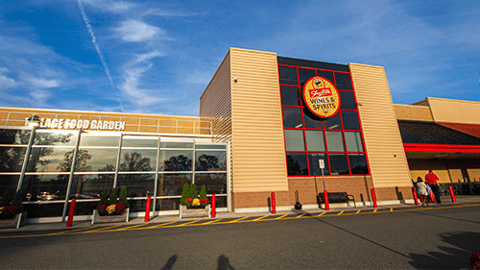Walmart, Denali Team on Recycling & Reuse Technology
Walmart has become the first retailer to team up with Denali, the nation’s largest recycler of organic materials, to introduce innovative depackaging services that can help improve the food waste recycling process at more than 1,000 Walmart and Sam’s Club locations across the country. Based on early testing, the technology has increased the volume of potentially reusable organic content recovered from the participating locations by more than 60% and reduced their compactor trash by an estimated 12%.
So far, the program has rolled out at more than 1,400 Walmart and Sam’s Club locations in 16-plus markets across the country, among them Houston; Dallas; Philadelphia; Washington D.C.; Indianapolis; Phoenix; and cities in New Hampshire, Rhode Island, Massachusetts and Connecticut, with launches to continue nationwide into next year.
[RELATED: Walmart Reups With Denali to Recycle Food Waste]
The depackaging technology and processes separate food from such packaging materials as plastic and cardboard, resulting in a cleaner stream of organic material that can be turned into animal feed or compost, or converted into energy with anaerobic digesters. The depackaging services help avoid the process of manually separating food from its packaging, which makes it easier to recycle and reuse food waste while freeing up time for retailers. Walmart is one of the first retailers to deploy these new capabilities at scale.
For Walmart, this initiative is an example of how the retailer is addressing operational waste through projects implemented to increase the effectiveness and efficiency of its waste management practices while furthering its sustainability goals and pursuit of operational waste reduction.
“As a people-led, tech-powered retailer, Walmart is focused on driving innovations that build operational efficiency, improve store associates’ experience and help reduce waste,” noted RJ Zanes, Walmart’s VP of facility services. “Denali’s depackaging technology can help enable us to turn millions of pounds of potential food waste into useful products each year while allowing our associates to devote more time serving our customers.”
Denali currently provides depackaging services to thousands of U.S. grocers, food manufacturers, distributors and municipalities by collecting their food waste and recycling it into products like compost, organic fertilizer, animal feed and clean energy, thereby keeping this resource out of landfills. According to Denali, its network of depackaging facilities can separate up to 97% of all trash from organic food waste, including expired food products, recalled items, food scraps, and spoiled deli, bakery and produce. The company’s depackaging services can also process such other food categories as animal products and dry and liquid goods.
[Never miss a story – sign up for Progressive Grocer's FREE Daily newsletter]
“Denali’s depackaging technology is revolutionizing the way in which food manufacturers, distributors, retailers – and the cities in which they operate – can reduce food waste,” said Ilia Kostov, chief revenue officer at Russellville, Ark.-based Denali. “We are proud to work with the leading retailer – Walmart and Sam’s Club – to help reduce food waste at scale while simultaneously enabling the circular economy.”
Following pilots of the program in various markets over several years, Denali began rolling out its nationwide depackaging services last year in Phoenix, where 2,000 tons of food waste generated from Big Game-related events and activities were diverted from landfills. Since that time, Denali has helped Phoenix and local retailers process and lower the amount of food waste reaching landfills.
The depackaging machines will enable Denali to recycle 1.5 million pounds of food waste daily, for an estimated 500 million pounds of food waste turned into compost, fertilizer, animal feed and clean energy each year, in partnership with retail and municipality partners, based on 100 tons per store, according to Denali. The program’s city-by-city expansion aims to enable each individual business or retail location that starts using the depackaging services to be able to divert an estimated 200,000 pounds of food waste from landfills.
Each week, approximately 255 million customers and members visit Walmart’s more than 10,500 stores and numerous e-commerce websites in 19 countries. With fiscal year 2024 revenue of $648 billion, the retailer employs approximately 2.1 million associates worldwide. Bentonville, Ark.-based Walmart U.S. is No. 1 on Progressive Grocer’s 2024 list of the top food and consumables retailers in North America. PG also named Walmart one of its Retailers of the Century. Sam’s Club, a division of Bentonville, Ark.-based Walmart Inc., operates nearly 600 clubs in the United States and Puerto Rico and is No. 8 on The PG 100.












